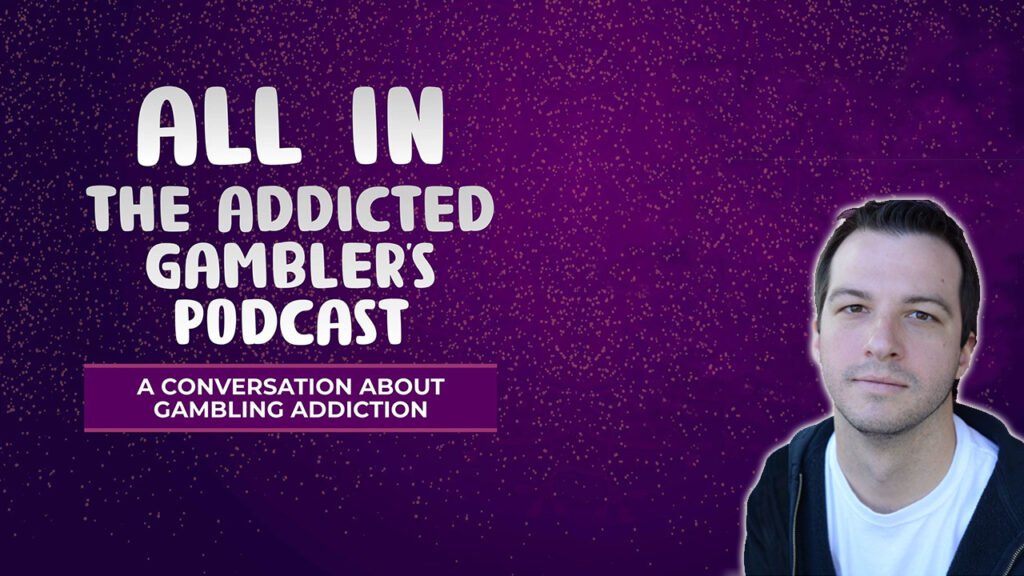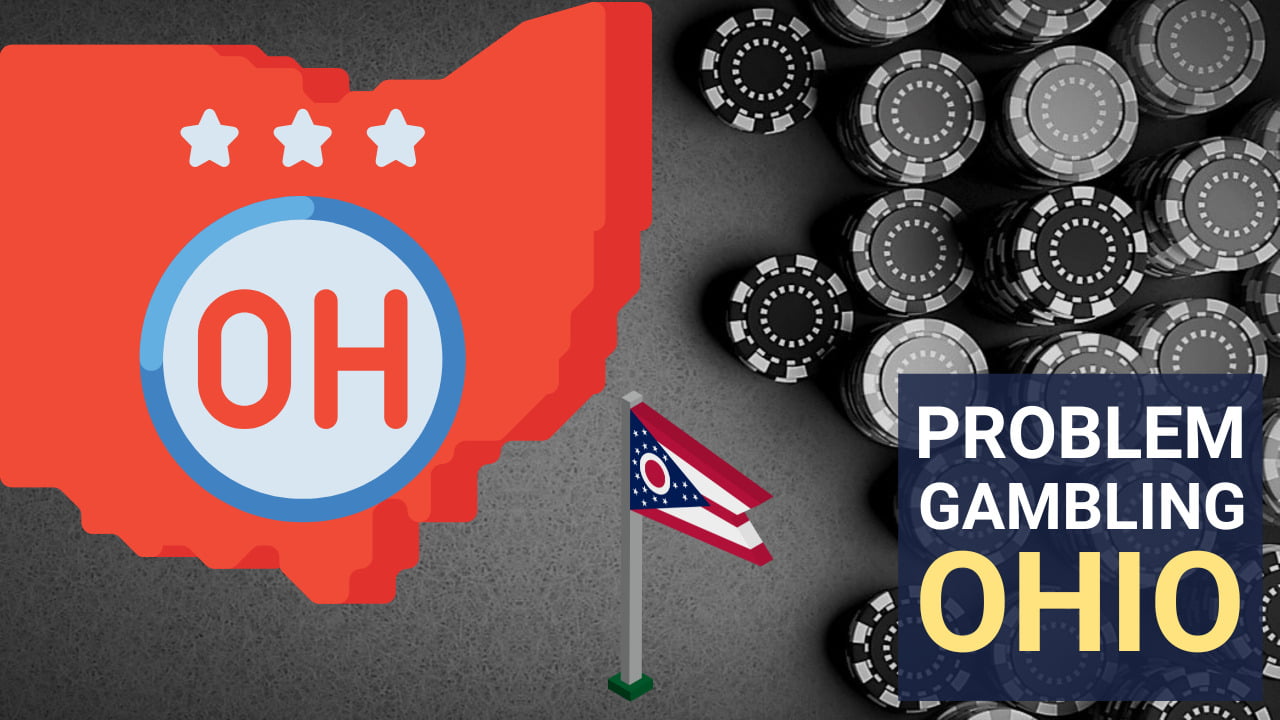Three highlights:
- Ohio has various gambling options and dedicates 2% of casino tax revenue to gambling support services.
- Ohio offers resources for individuals struggling with gambling addiction, such as treatment services and a helpline, and works closely with Gamblers Anonymous.
- Responsible gambling messaging and resources vary among the state’s different casino properties, and the conversation highlights the challenge of balancing consumer protection and providing an entertaining experience for gamblers.
In the interview, Derek explains how he got involved in gambling addiction prevention and the similarities between gambling and alcohol addiction prevention. He notes that gambling support services provide website and phone number resources for those struggling with a gambling addiction in Ohio.
Derek also describes the different types of gambling in Ohio, including casinos and racing shows, which offer video lottery terminals. He discusses his connection to youth-led prevention and his interest in community-wide change. The conversation highlights the issue of gambling addiction in Ohio, which is being addressed by the state through support services and prevention work.
Ohio offers various gambling options, including lottery machines and games, charitable gaming such as bingo and instant bingo, and poker with friends at home as long as there is no associated take.
However, the state has yet to legalize sports betting, causing concern among some due to the potential for truckloads of money to be spent in neighboring states that allow sports betting. The Problem Gambling Network of Ohio works closely with Gamblers Anonymous and recovery advocates to help those struggling with sports gambling addiction and their loved ones.
The organization receives funding from the Department of Mental Health and Addiction Services, the Ohio Casino Control Commission, and the Ohio Lottery Commission, as well as through lobbying efforts and membership benefits.
Ohio State offers a range of resources to help individuals struggling with gambling addiction. Treatment services are available throughout the state. It includes outpatient and intensive outpatient programs. Ohio State has over 80 certified gambling counselors who can see individuals with gambling addiction, and referrals can be made through the Ohio Problem Gambling Helpline (Call: 800 589 9966). Additionally, resources like Quit Gamble, Gamblers Anonymous, and telehealth services are available, allowing gambling services to come directly to the individual.
Ohio’s 2% casino tax revenue is dedicated to gambling support services, and every area in Ohio has gambling support service dollars. Sliding scale fees and free treatment services are available for all Ohio residents, regardless of insurance coverage.
The state conducted a baseline survey on gambling prevalence before opening casinos and racing, which showed an increase in individuals falling into the game problem gambling category and meeting the diagnostic criteria for a gambling disorder.
However, there is no rigorous study related to gambling treatment. It can be challenging to quantify the effectiveness of the services provided due to the different paths individuals may take to seek help. The focus is on making various resources available and being there for individuals when they are ready to seek help.
They also discuss the issue of responsible gambling in Ohio. Derek explains that messaging and resources for responsible gambling vary among the state’s different casino properties, and their organization ensures that casinos have the necessary resources to promote responsible gambling. Brian brings up concerns about the effectiveness of responsible gambling techniques, such as setting limits on bets, as they may not be effective for those already experiencing gambling addiction.
The discussion highlights the challenge of balancing consumer protection and providing an entertaining experience for gamblers. The conversation also touches on the potential of a cashless system and how it may improve tracking and create more avenues for problem gambling. Ultimately, the discussion emphasizes the need for early prevention and education on the potential impacts of gambling to help individuals make informed decisions.
The Problem Gambling Network of Ohio offers a variety of programs, such as counselor training, supervision calls, and an annual conference. The executive director’s main wish is for more people to understand that gambling addiction is a real issue and that resources are available to help those affected by gambling.
The network uses statewide campaigns, social media, and specific community data to disseminate information and raise awareness about gambling. They also collaborate with Dr. Heather Chapman to provide effective clinical services.
The upcoming Ohio Problem Gambling Conference in March 2023 will be held virtually throughout the entire month. The network encourages people to stay informed and work together towards positive change by following their social media and attending their events. A helpline and website are available for anyone seeking gambling support in Ohio.
To learn more about Derek Longmeier, the work of The Problem Gambling Network of Ohio, how to stop gambling in Ohio, and what support you can expect. Listen to the full podcast episode.
FAQ
What help is available for a gambling addict in Ohio?
They have counseling services, outpatient treatment services, intensive outpatient programming, and certified counselors who can see gamblers. Resources and referrals are then connected with the Ohio Problem Gambling Helpline. When someone calls the helpline, they can connect with a clinician as close to their local community as possible.
Additionally, resources like QuitGamble.com, Gamblers Anonymous, and telehealth services are available, allowing gambling services to come right to the individual. Sliding scale fees and free treatment services are available for all Ohio residents, regardless of insurance coverage.
Can you get gambling support in Ohio without insurance?
Ohio State does cover treatment for individuals who cannot afford it or do not have insurance. Some treatment providers work on a sliding scale, and others allow for the 2% allocation to provide free treatment services. Regardless of who you are, as long as you’re an Ohio resident, you can get free or low-cost gambling services. It does not matter if someone wants to run through their health insurance or pay through other means, as resources are available. Furthermore, no stigma is associated with seeking help for gambling addiction, and Ohio is here to take care of those in need.
How is the Problem Gambling Network of Ohio funded?
Most of the funding for the Problem Gambling Network of Ohio comes through the Department of Mental Health and Addiction Services and for Responsible Gambling, including mental health and addiction services, the Ohio Casino Control Commission, and the Ohio Lottery Commission.
What forms of gambling are available in Ohio?
Ohio offers all the lottery machines and games, including Keno and multistate games like Mega Millions and Powerball. Charitable gaming, which includes bingo and instant bingo, is regulated by the Ohio Attorney General’s Office. Additionally, poker with friends at home is not something that’s regulated. However, sports betting is not yet legal in Ohio
What stages of training can gambling counselors get?
The network offers stages of training throughout 12 months to get the gambling counselor all the hours they need to become certified either in Ohio or nationally through stage one, stage two, and advanced training. Additionally, they have supervision calls set up regularly where those treating gamblers can ask questions and bounce ideas off of people on the Zoom meeting as well as Dr. Heather Chapman, who is one of the international leaders in this field and oversees their gambling supervision program.
How would you compare gambling and alcohol addiction prevention?
There are many similarities between the two, such as the age of majority for participation and similar risk and protective factors. However, there are also some policy differences. Ohio dedicates 2% of its casino tax revenue to gambling support services, whereas other areas like alcohol and tobacco do not have dedicated funds.
Derek also noted a substantial lack of awareness of the impact of gambling in Ohio and within communities. It’s an area where his team works to raise awareness and support those who may be struggling with gambling addiction.

 English
English Español
Español Français
Français Português
Português Svenska
Svenska

